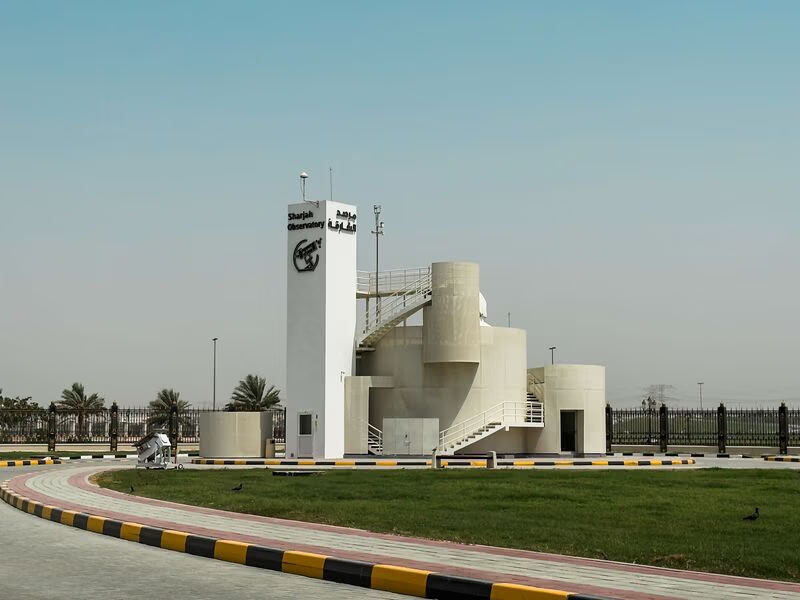The Sharjah Astronomical Observatory at the University of Sharjah’s Academy for Astronomy, Space Sciences, and Technology (SAASST) has successfully recorded one of the most complex and scientifically valuable stellar occultations of the year — a rare event involving the distant Trans-Neptunian Object (TNO), Quaoar.
The successful observation positions the observatory among a select group of institutions worldwide that are capable of contributing to high-precision astronomy. Only a few of the 26 participating observatories worldwide managed to document the event, with Sharjah’s success attributed to both favourable location and advanced technical capabilities.
The occultation — in which the asteroid Quaoar passed in front of a distant star and momentarily blocked its light — lasted up to 45 seconds, offering a valuable window to study Quaoar’s size, shape, and physical characteristics. Quaoar, which has a diameter of around 1,110 kilometres, orbits the Sun at a distance of over 6.5 billion kilometres.
The event was technically demanding due to the faintness of the occulted star, its position near the dense star field of the Milky Way’s centre, and the extended duration of the shadow. This made accurate instrumentation and synchronised timing systems essential.
Sharjah’s optimal placement along the asteroid’s central shadow path enabled a clear and complete observation. In contrast, many other observatories failed to capture the event due to adverse weather or geographic misalignment.
Occultation events are considered one of the most precise observational tools in astronomy, often providing key insights into the physical properties of distant celestial bodies. SAASST’s successful observation further strengthens the UAE’s position in the global scientific community and highlights the country’s growing contribution to space research.
–Input WAM





